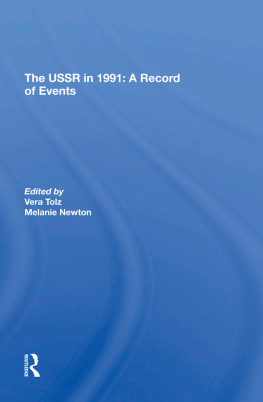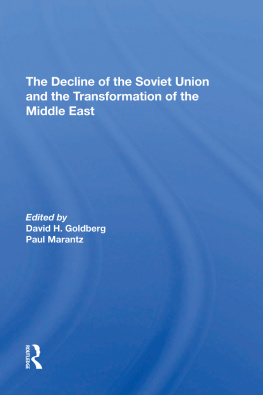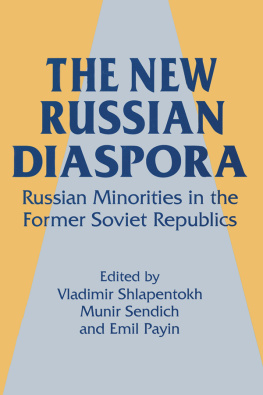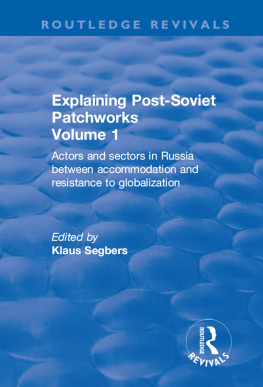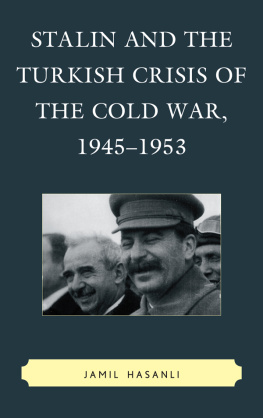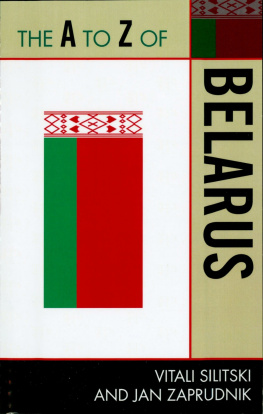Governing the Soviet Unions National Republics
Second Secretary of the Central Committee of a Soviet republic does not sound a very important position, but as this book shows it was an extremely important role, one that helped hold the Soviet Union together and helped to keep it going for so long. The key was that Second Secretaries were both members of a Soviet republics ruling body and at the same time members of the All-Union ruling elite they were often characterised as Moscows governor generals. This book examines how the position of Second Secretary was established by Khrushchev in the 1950s, explores how it took on increasingly important political functions representing Moscows interests in the republics and the republics interests in Moscow, and discusses how the conflicts, inherent in the role, developed. The book also provides biographical details of the people who held the position and argues that the role was extremely effective in managing what could otherwise have been very difficult relationships between centre and periphery.
Saulius Grybkauskas is a Senior Research Fellow and Deputy Director for Research at the Lithuanian Institute of History, Vilnius, Lithuania
BASEES/Routledge Series on Russian and East European Studies
Series editors: Sociology and anthropology: Judith Pallot (President of BASEES and Chair), University of Oxford
Economics and business: Richard Connolly, University of Birmingham
Media and cultural studies: Birgit Beumers, University of Aberystwyth
Politics and international relations: Andrew Wilson, School of Slavonic and East European Studies, University College London
History: Matt Rendle, University of Exeter
This series is published on behalf of BASEES (the British Association for Slavonic and East European Studies). The series comprises original, high-quality, research-level work by both new and established scholars on all aspects of Russian, Soviet, post-Soviet and East European Studies in humanities and social science subjects.
132 Azerbaijan and the European Union
Eske Van Gils
133 Freedom of Expression in Russias New Mediasphere
Edited by Marille Wijermars and Katja Lehtisaari
134 The Russian State and Russian Energy Companies, 19922018
Ingerid M. Opdahl
135 The Making of Kropotkins Anarchist Thought
Richard Morgan
136 From German Knigsberg to Soviet Kaliningrad
Appropriating Place and Constructing Identity
Jamie Freeman
137 Governing the Soviet Unions National Republics
The Second Secretaries of the Communist Party
Saulius Grybkauskas
For a full list of available titles please visit: https://www.routledge.com/BASEES-Routledge-Series-on-Russian-and-East-European-Studies/book-series/BASEES
First published 2021
by Routledge
2 Park Square, Milton Park, Abingdon, Oxon OX14 4RN
and by Routledge
52 Vanderbilt Avenue, New York, NY 10017
Routledge is an imprint of the Taylor & Francis Group, an informa business
2021 Saulius Grybkauskas
The right of Saulius Grybkauskas to be identified as author of this work has been asserted by him in accordance with sections 77 and 78 of the Copyright, Designs and Patents Act 1988.
All rights reserved. No part of this book may be reprinted or reproduced or utilised in any form or by any electronic, mechanical, or other means, now known or hereafter invented, including photocopying and recording, or in any information storage or retrieval system, without permission in writing from the publishers.
Trademark notice: Product or corporate names may be trademarks or registered trademarks, and are used only for identification and explanation without intent to infringe.
British Library Cataloguing-in-Publication Data
A catalogue record for this book is available from the British Library
Library of Congress Cataloging-in-Publication Data
A catalog record has been requested for this book
ISBN: 978-1-138-39175-8 (hbk)
ISBN: 978-0-429-42254-6 (ebk)
Typeset in Times New Roman
by codeMantra
Translated by Diana Bartkute Barnard, and edited by Michael Loader
This monograph is a result of almost ten years work. It started from research into the activities of second secretaries in Soviet Lithuania, along with a comparison of second secretaries in Latvia carried out during a 20092011 postdoctoral study organised by the Research Council of Lithuania. As early as during my postdoctoral studies it became obvious that the political institution of second secretaries was a phenomenon characteristic not only of the Baltic republics but of the whole USSR. The image of an omnipotent representative of the Kremlin nicknamed a governor general and purportedly having greater political influence than the first secretary was merely a myth deeply rooted in historical memory. It thus became obvious that the question of how the Soviet periphery was controlled, the analysis of which involved research into the political decisions of Moscow, interaction between the centre and republics, Soviet nationalities policy, the collective picture of second secretaries, the nomenklatura and personal networks, was considerably harder to define. Only at the very first glance might one have the impression that second secretaries are a very narrow group of functionaries and played only a small part in the relations between Moscow and the national republics.
This theme enables a discussion of the Soviet period from a number of perspectives. First of all, it can be seen as a Soviet empire, discerning national discrimination and exceptional career opportunities within the political space of the USSR in the activity of second secretaries. Or it can be approached from the point of view of social history: by examining separate groups of top-level functionaries, manifestations of nationalism, and the role of ethnicity with the characteristic notion of the self and of the other. Economic policy is also important because second secretaries operated as the agents of the unified complex of Soviet national economy; even Soviet day-to-day life, leisure, and consumption should be taken into account as daily life was a vital context both of the way of feeling and the behaviour of the governors general. In addressing all these questions, I utilised material from the archives of Lithuania and Latvia, as well as Estonia, Moscow, Georgia/Sakartvel, Kazakhstan, Moldova and Belarus. For half a year, I collected materials in the archives of the Hoover Institution during a research stay at Stanford University, California as a Fulbright visiting scholar. I am grateful to Professor Amir Weiner of Stanford University for his consultations during the visit. I am deeply indebted to Valerii Kharazov (19182013), Vitalii Sobolev, Nikolai Leonov, and Albert Rachkov for not being afraid to meet a historian in Moscow from a foreign land and to share their experiences of the behind-the-scenes activities of the Central Committee of the Communist Party of the Soviet Union (CPSU CC).
Interviews conducted in Lithuania and Latvia were integral to the research for this book. For their interesting stories I extend my thanks to Vytautas Astrauskas, Valerjonas Baltrnas, Andrei and Sergei Belukha, Vladimir Beriozov (19292016), Jonas Baravykas, Aleksandras Garifulinas, Sofija Grikeviien, eslovas Jurnas, Vilius Kazanaviius, Vanda Kliknien, Vladimir Korniyenka, Lionginas Maksimovas, Vladislovas Mikuiauskas, Justas Vincas Paleckis, Sergei Rybakov, Bernadeta Sakalauskien, Lionginas epetys and Janis Urbanovi and Gennadij Loskutov


